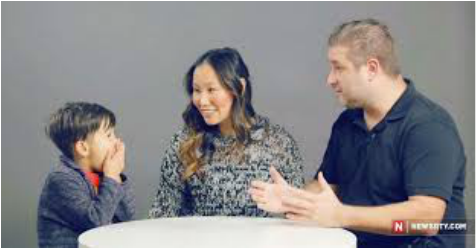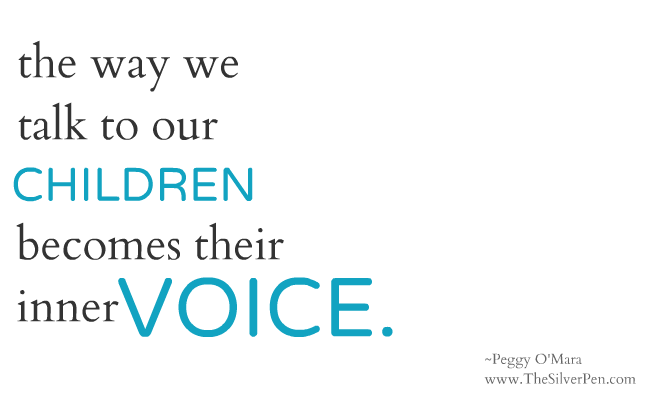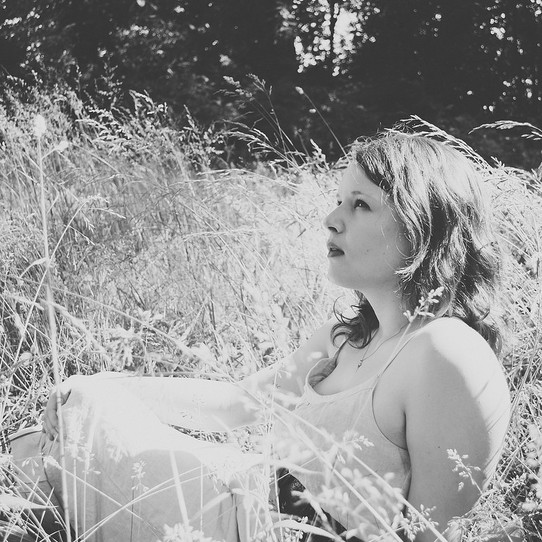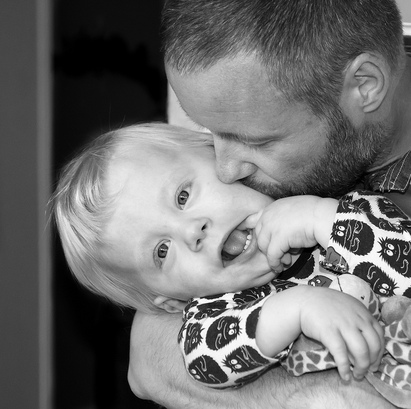|
Beyond the Birds and the Bees
Parent Education Series Sex. Wondering how to discuss it with your children? Wondering how your own experiences are shaping the conversations with your child? Want to know what is normal, healthy sexual development and when to be concerned? Want to ensure that sex doesn't become shameful or embarrassing? Do you want your child to talk to you first? No one knows your child better than you do, and as parents, your deep love and connection to your child makes you the best person for the job. Join us! Shannon Hickman, LCSW a trained sex therapist, will be sharing her expertise on healthy sexuality. Whitney Barrell, LCSW who specializes in child therapy, will focus on child development and the use of parent-child relationship to foster healthy development. Topics include:
Who: Parents of children ages 3-17 When: Monday July 13th AND Monday July 20th 7:00pm-8:30 pm. Cost: $200 per couple/individual Where: South Valley Therapy 8537 S. Redwood Road, Suite A, West Jordan, UT 84088 Click HERE to sign up. Shannon Hickman, LCSW holds a Master's Degree of Social Work from Rutger's University and has a private practice in Taylorsville, Utah where she specializes in couples counseling and sex therapy. As a trained sex therapist she is able to help with a variety of concerns related to sexuality and intimacy. Whitney Barrell, LCSW holds a Masters of Social Work degree from the University of Utah and maintains a private practice in the Salt Lake City, Utah. She works mainly with young children and their families on mental health issues and is focused on and improving family relationships.
0 Comments
Parenting is the most demanding job we’ve got.
Most parents aren’t making deliberate decisions about what skills they need to possess to be the best parent; rather they are ensuring teeth are brushed, homework is done, and talking with children about their ideas and goals — which turn out to be important parenting skills. Parenting absorbs us; it’s hard to get an objective look around. We don’t often rely on science to guide our parenting decisions. It’s more likely that we consider the type of parents our parents were, and either duplicate the parts we felt were effective, or turn the other direction entirely. Women talk with their girlfriends about discipline or choosing a good school. Men trade stories about their children and their relationship with them. We ask the pediatrician, and we notice the skills other parents utilize at the park and we integrate them into our routine. We Google. We read parenting books. And when we’ve done all of that, we realize how much contradiction exists. Dr. Robert Epstein has done the legwork for us. He’s compiled a list of 10 parenting competencies that are predictive of good outcomes. In this case, good outcomes for children are defined as a child's success, health and happiness, as well as the quality of the relationship between parent and child. Eleven parenting experts evaluated the 10 competencies identified, and data was collected from over 2,000 parents who identified both the outcomes of their children (health, happiness, success) and how closely they parented related to the 10 competencies. Using this data, Epstein ranked what competencies had the most impact down to which had the least:
Love and affection Love and affection tops the list. The one-on-one time we spend supporting our child has a direct impact on his or her degree of happiness, health and success. Parents are powerful. Stress management and relationship skills Interestingly, competencies ranked No. 2 (stress management) and No. 3 (relationship skills) are factors that don't involve our child directly. How a parent manages stress and the skill he or she possess in relating to other adults aren't typically considered parenting skills. But, as we see from where they rank, are factors of high importance. Mothers and fathers in healthy and satisfying marriages are more engaged in their roles as parents and have more positive attitudes toward their children. Frequent and intense conflict, on the other hand, is associated with unresponsive and insensitive parenting.–Urban Institute Stress management is a measure of how well a parent manages his or her stress. If a parent can rely on healthy ways to minimize stress, he or she is more accessible to the children and has more time for love and affection. This finding dovetails with what we know about maternal depression and its impact on children. When mothers are depressed when their children are young, they may be fighting to manage basic care-giving tasks (food, hygiene, etc) and don't have the energy for important bonding that takes place early on. Regardless of a child's age acting as a role model by caring for yourself, will pay off for the entire family. Relationship skills reference a parent's ability to communicate and compromise, whether he or she is parenting in the same household or co-parenting due to divorce or separation. Children show improved outcomes when parents are able to speak kindly to one another and model healthy relationship skills. Prolonged exposure to high conflict between parents has an impact on children's psychosocial development. Research by the Urban Institute goes further, reporting, "Mothers and fathers in healthy and satisfying marriages are more engaged in their roles as parents and have more positive attitudes toward their children. Frequent and intense conflict, on the other hand, is associated with unresponsive and insensitive parenting." Life skills Life skills are another domain where parents have a degree of control. Epstein defines life skills as one's "ability to provide for your child, have a steady income and a plan for the future." As we can see, many of these competencies are intertwined. Those who are financially stable have one less thing to worry about and one less stress to manage. Behavior management Behavior management is likely the competency most fuzzy for parents. There are myriad opinions on the best way to diffuse conflict with our child, or ensure that he or she complies with our requests. Recently, advances in neurosciencehave shed some light on this topic. We know that when a child is hyper- or hypo-aroused, he or she is unable to participate in problem-solving or skill-building. The good news is, despite all the contradiction in how to best discipline our child the approach we use isn't as important as it may feel. Besides, this competency falls in the lower third of the list. Religion Religion makes a surprising appearance on the parenting skills list. One theory is parents who support or encourage spiritual development may be a part of a broader religious community that provides support for the family spiritually and informally, and that leads to improved outcomes. Figuring it all out Parenting often feels sandwiched between guilt and shame. Being a parent seems to be a very public display of one's skills and abilities when this isn't the case. All parents, regardless of outside circumstances, desire for their children to be happy and healthy. How we progress toward that goal is determined by our history, values, experiences and opportunity. Among this list of 10, there is undoubtedly a place where we "have it down." If one is interested in testing where he or she falls among the 10 competencies, Epstein's website has a skills test that will assesses a person's strengths and provide feedback. First published by KSL on May 24, 2015. https://www.ksl.com/?sid=34582765&nid=1009&title=parenting-skills-the-top-10-suggestions-for-raising-happy-children&s_cid=queue-5 The Finding Peace Infertility group has just wrapped up it's first rotation. It was incredible. A group of five women who didn't know one another at the beginning of the 6 weeks formed honest, genuine, vulnerable relationships with one another. The group members shared their intimate thoughts, feelings of intense loss and were met with support and open arms.
Throughout the group participants journaled, used art therapy to create a visual representation of how infertility feels, their goals and accomplishments, and most importantly, found a space where they didn't feel alone. (Current group info here.) One of the journaling assignments was related to how infertility affects the relationship with ones spouse. I requested that the group write a letter to their spouse about how infertility has impacted them. And, one participant blew us away, a wicked smart women full of love and compassion shared her letter, and there wasn't a dry eye in the room. So, in honor of Infertility Awareness Week, and with her permission, I'd love to share her letter with you. Maybe you can relate. A letter to my husband, Infertility has beat me up. It has drawn blood and left me battered and bruised. When I was younger I had a plan that I was going to be married and starting a family by 23. It was always something that I wanted but never happened, and you know I'd never settle. When I married you at 30 I thought it was finally my turn. You know I wanted kids right away, but I had to wait- we needed to finish law school, then we needed to move, take the bar, get jobs, get better jobs. By the time we said "fuck it" and gave up trying to be ready, I thought again, this is finally it. Month after month, year after year, disappointment set in. After the miscarriage in December, it happened. I lost hope. I am defeated, broken, sad. I know you must feel something too, but when you try to comfort me by agreeing that infertility sucks or that you know how I feel- I am surprised. I feel as if I am telling a friend my woes and I expect sympathy, but not understanding. I often times forget you are on this journey with me. I don't know if that is because you don't often share your feelings on the subject because I am so consumed with mine, or that I don't listen. I want to though, I want to listen to you and be excited about the future with you. I want us to be the "Spokane us." We were broke, unemployed, childless, and without a clue to what we would do next, but we were happy, and in love, and excited about possibilities. I think more than anything I want, I need, action. I am so sick of saying everything and doing nothing. Let's do our frozen transfer, let's adopt, let's move, let's change careers or take the bar again. I don't want to wait anymore. I want to live the very precious lives we've been given. Life is so short and I don't want to spend it waiting. I want to LIVE IT with you. I want to TRY with you. I love you. -- Infertility is complex; not just the medical side of treating infertility, but the emotional side of treating it. Essentially, infertility, whether it's the inability to conceive, frequent miscarriages or otherwise, is loss.
Many couples are surprised by the intensity of their feelings related to infertility. Perhaps this is because grief related to infertility is disenfranchised grief, or grief that is not acknowledged by society. For example, the loss of a pet, loss of a home and loss of a family member by suicide are all forms of disenfranchised grief. This type of grief is often unaccompanied by cultural standards for how to provide support. We know what to do when a loved one passes away, we know what to do when someone is sick, but the loss related to infertility is more obtuse and complex. Most of us don’t know how to support someone experiencing it. This can make friends and family feel helpless or anxious; and rather than attempting to provide support we may avoid the subject. In my work with couples experiencing infertility, a few themes have risen to the top in helping them cope: Acknowledge the loss Just as society as a whole doesn’t acknowledge infertility grief, both women and men struggle individually to acknowledge that their feelings of sadness and loss are legitimate. Infertility takes away one's ability to plan how or when their family is built — a loss of control over one's body. Sometimes it's the loss of a genetic link to our children, or the loss of the experience of pregnancy. Loss manifests as irritability, sadness, anger, frustration, anxiety and many other emotions. When couples acknowledge that they are experiencing a crisis in their relationship, or a disconnect in how they envisioned their life together, they can begin to understand their feelings and cope with them in healthy ways. Acknowledge loss, then start again Unfortunately, infertility is a long cycle of hope and loss — hope in a late period, hope in a medical procedure, hope in an adoption match. Just as there is hope in the events, there is also loss. These events typically follow in lock-step, and often couples don’t have the time or emotional energy to grieve one before another hits. Although the experience of loss is highly individual, research by Elizabeth Kubler-Ross outlines stages of grief. Many experience denial, anger, bargaining, depression and acceptance. It’s more common for us to experience these emotions in a non-linear way. One day we may feel some acceptance, the next, back to anger and bargaining. Rather than chastising ourselves for feeling angry, accept that at this time, it’s useful to feel the emotion rather than fight it off. Create space By creating space, I mean creating emotional space. Give yourself space, time and acceptance to feel your feelings. Grief isn’t a race; there’s no finish line. There isn’t a right way or wrong way to work through it. Rather than placing rules and expectations on how you should feel, or for how long, allow yourself the space to grieve. This piece can’t be underestimated. Just as you allow for your own grieving, do the same for your partner. Acknowledge that he might not grieve the same way you do. He might not cry or talk about it like you want to. She might not cry, rather preferring to look forward and be optimistic. Some find it useful to create a ritual or tangible event to mark the loss. Others use their creative side to sculpt, paint or create something that is a visual manifestation of their feelings. Seek support Identify the friends and family who understand the intensity of your emotions. If you sense they don’t know how to support you, give them some suggestions. Reach out to others experiencing infertility throughsupport groups or online forums. Feeling understood and supported is paramount to coping. Infertility can be isolating, being in contact with those who “just get it” cuts down on the need for you to explain your feelings or provide background. Find a group of women or men who understand the loss associated with infertility who can accompany you on the road towards healing. Welcome! Don't want to take the time and cognitive skill to read Debunking Adoption Myths? (Me neither!) Now you've got the option to put me in your ears! I was invited to speak with Kelly Ellison on her podcast, Your adoption Coach, to discuss the myths of adoption. Join a small group of women in discussion about the impact of infertility. Open to women on any part of the fertility journey including, fertility treatment or third-party reproduction and those moving towards adoption. Led by Whitney Barrell, LCSW therapist, with both personal and clinical expertise in infertility counseling.
When: Wednesdays March 18th-April 22nd 2015 (6 week group) 8:00-9:00 pm Where: Whitney Barrell’s Office 1308s. 1700e. #209 SLC, Utah 84108 Why: Because it feels good to be in a group of women who “get” what you are dealing with. Investment: $120 ***Feel free to call with questions about the group, or to see if it would be a good fit for you. Let me save you some time and "googling" and share this comprehensive list complied by Jay of Fertility Authority and the two week wait blog. Below is a list of grants, clinical trials, scholarships, foundations, even contests of some sort all dedicated to the financial barrier that exists in infertility. As always, do your due diligence in researching the ins and outs of each.
Clinical Trials: www.clinicaltrials.gov. You can search for free fertility treatment in your area that you may qualify for. On my second IVF, I did a clinical trial and found out about it through the clinic I was seeing. If you don’t want to go the website, you can ask your current doctor if they are participating in any you might qualify for. The Tinina Q. Cade Foundation’s Family Building Grant: http://www.cadefoundation.org. They are accepting applicants NOW for the 2016 $10,000 grant so you can fill out a form here: http://www.cadefoundation.org/?page_id=10 Baby Quest: http://babyquestfoundation.org/ The AGC Hope Scholarship:http://www.agcscholarships.org/about-agc/ Fertile Dreams – The Embracing Hope Grant: http://www.fertile-dreams.org B.U.M.P.S.: http://www.yourbump.org/ The Heart to Heart Video Contest:https://hearttoheartcontest.com/ The International Council on Infertility Information Dissemination (INCID): http://www.inciid.org Parenthood for Me: http://www.parenthoodforme.org/ Sparkles of Life: http://www.sparklesoflife.org/ The Angels of Hope Foundation:http://www.angelsofhopeinc.org/creatingMiraclesGrant.htm The Sharing Hope Financial Assistance Program:http://www.livestrong.org/we-can-help/fertility-services/fertility-resource-guide/ Verna’s Purse: http://www.reprotech.com/financial-assistance.html?faqitem=faq31 Lost Stark Foundation: http://loststorkfoundation.org/ You are in for a treat. Angela Tucker, a blogger, educator and speaker on white privilege, transracial adoption and race relations interviews two young adoptees about their experience with bullies, questions about their "real moms" and why why adoption is happy and sad. A subject near and dear to my heart, and largely misunderstood. First featured on KSL, read on to have your myths debunked--or if you are an adoptive parent, read on to feel some validation about the experience you know so well.
Adoption is mysterious to many of us; we’ve relied on Lifetime movies and anecdotes of the most rare situations in adoption to define it. As a result, there are many myths that swirl around adoption and, as always, the truth is somewhere in the middle. The information that follows is applicable to domestic and foster care adoptions, rather than international adoption. The birth mother/father can show up at any time and take the child. False. Once the adoption is finalized, the child’s adoptive parents are recognized by law. Post-adoption revocation is very rare, but these cases do gain publicity, which further perpetuates the myth. According to Utah law, the birthfather can sign relinquishment papers at any time, including before the birth of the child. The birthmother may sign relinquishments 24 hours after the birth of the child. Most ethical adoptions are agreed on by birth parents who have made a very sacred decision that they feel is in the best interest of their child. Birth parents are troubled teens and not to be trusted. False, false, false. On average, birth parents are in their 20s. Typically, birth parents choose adoption because they don’t have the means — financially, emotionally or otherwise — to parent the child. This factor doesn’t make a person dangerous or untrustworthy. Consider the amount of trust a birth parent gives an adoptive couple in order to choose them to raise their child. Open adoption (where the adoptee has identifying information about their birth family, and the birth parents choose adoptive parents) is emotionally harmful to the child. False. Open adoption takes away the mystery. When adoptive parents are able to share information about the child’s birth parents and their history, the children understand their beginnings and they understand why a placement decision was made. According to a study completed by the Minnesota/Texas Research Project, birthmothers involved in open adoptions had lower levels of adoption-related grief and loss than compared with those involved in a closed adoption. The study points out "adopted adolescents was no different in levels of adjustment from the national norms. Level of openness by itself was not a major predictor of adjustment outcomes at Wave 2. However, relationship qualities, such as collaboration in relationships and perceived compatibility, were predictive of adjustment across openness levels." Open adoption is like co-parenting. False. Birth and adoptive parents do not share custody. Adoption outlines distinct roles. Open adoption allows for the child to have an ongoing relationship (of some level) with birth parents. Some birth parents report having an aunt/uncle-like relationship with the child. Same-sex parents are not capable of providing a healthy environment for a child. False. Years of research by the Donaldson Adoption Institute has proven that children parented by same-sex or heterosexual couples have the same outcomes, happy and healthy. The racial background of most children in foster care is that of a minority. False. According to the most recentKids Count data, 46 percent of foster children are white, 26 percent are black, 21 percent are Hispanic and the remaining 9 percent are multiracial. Adoption is born of loss. True. Adoption is sometimes the best-case scenario for the birth parents, who aren’t ready to parent; the adoptive parents, who have sometimes been waiting many years to parent; and the child, who is provided a safe, stable home. Despite this, adoption occurs because of a loss — a child's loss of biological parents and the loss of connection to their history. As an adoption community we don’t do anyone any favors by glossing over this fact. Adoption is expensive. True and False. Adoption from foster care can cost little to nothing. Information from the Child Welfare Information Gateway cites domestic adoptions can range from $5,000 to $30,000, and international adoption can cost $15,000 to $30,000. These fees are paid to social workers, attorneys and a small amount (as determined by each state) can be used for birth parent expenses such as rent, maternity clothes, etc. Birthparents are not paid for the adoption. Adoptive parents must be “perfect” to pass the home study. False. Adoptive parents must prove that they can provide financially and emotionally for the child. They are asked about their relationships with family and spouse, employment, plans for when the child arrives and understanding of adoption. Most adoptive parents pass the home study process. Waiting to tell my child he or she was adopted until they can understand is better for them. False. History has been a guide for us in this domain. Historically, adoptions were closed. Because of this, it was easier (and expected) for adoptive parents not share information about their child's origins at all — or if so, later in life. Due to the research on open adoption, we now know that children who are provided information about their birth family early on fare better in the long run emotionally. Same-sex parents are not capable of providing a healthy environment for a child. False. Years of research by the Donaldson Adoption Institute has proven that children parented by same-sex or heterosexual couples have the same outcomes, happy and healthy. If I don’t talk to my child about their racial identity (if it's different from my own) then it won’t be an issue. False. Children adopted transracially need special attention in order to achieve positive formation of their racial identity. Again, the Donaldson Adoption Institute has found “positive racial/ethnic identity development is most effectively facilitated by 'lived' experiences such as travel to native country, attending racially diverse schools, and having role models of their own race/ethnicity.” Adoption has always been a way to build families, although in the past two decades, our understanding of best practices for all members of the triad has increased. As this understanding shifts, so does public misunderstanding. Adoption stories and experiences are as diverse as they come, because an adoption experience is a human experience. |
Archives
March 2024
Categories
All
|









 RSS Feed
RSS Feed